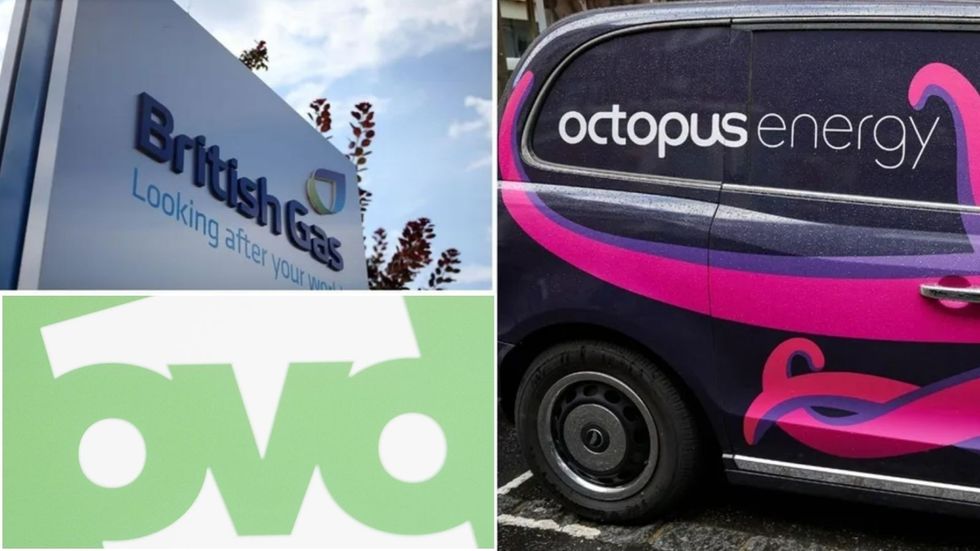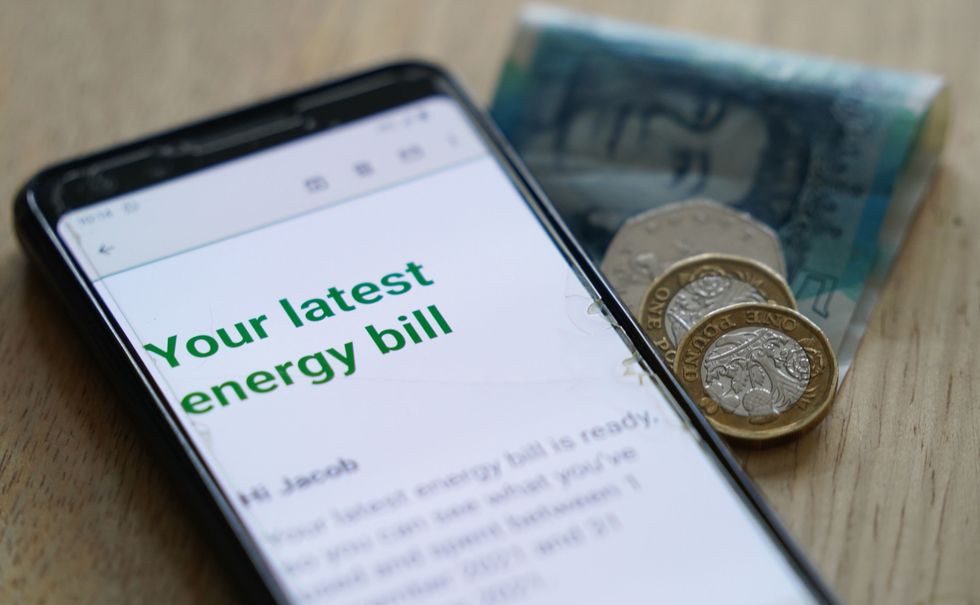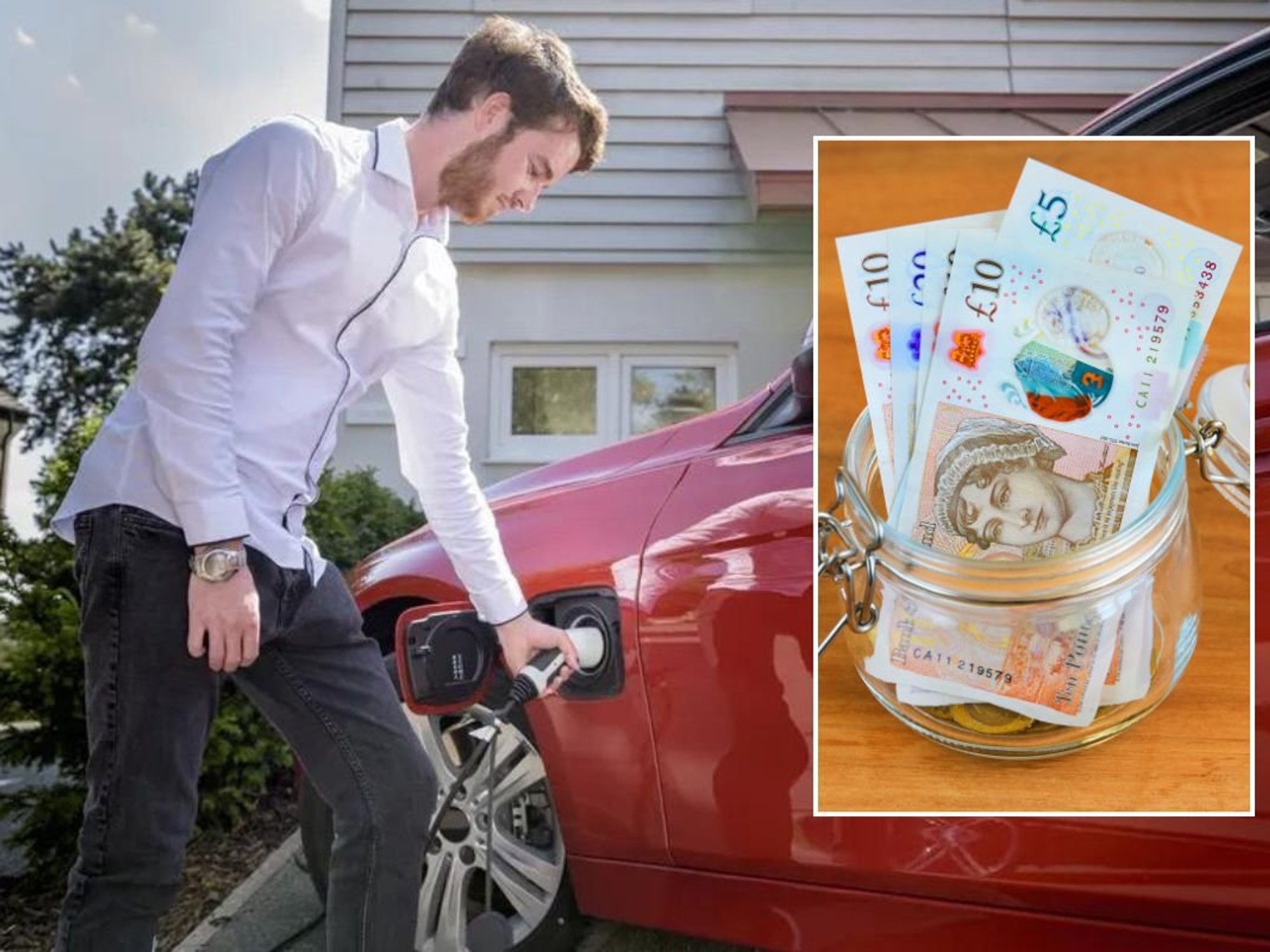British Gas, OVO, EDF, and Octopus customers warned of 'hidden energy wasters' adding £360 to bills

Energy bills to fall in July as Ofgem confirms price cap drop |
GBNEWS

Britons can take practical steps to reduce their energy consumption and save on bills
Don't Miss
Most Read
Millions of British households are being warned about the "worst energy wasters" adding over £300 a year to bills.
Energy experts have shared how customers of all major suppliers, including British Gas, OVO, EDF and Octopus, can save some extra cash this summer.
Nearly half of UK energy account holders remain unaware of how much their everyday electrical items truly cost to run, according to research from Utilita Energy. The survey found that 42 per cent of consumers don't realise the financial impact of high-power household appliances.
Hidden energy consumption from devices on standby mode is draining millions from British households annually. Gaming consoles alone cost UK homes a staggering £231 million each year when left on standby, according to data from Confused.com.
This figure dwarfs the cost of televisions in standby mode by 60 times. Electrical expert Chris Madikian from The Local Electrician has identified numerous household appliances that consume far more energy than most people realise, even when they appear to be switched off.
Madikian said: "When thinking about big energy consumption, many people focus on the usual suspects, washing machines or tumble dryers, but overlook the constant drain from devices that run 24/7,"
Set-top boxes and gaming consoles
Gaming consoles and set-top boxes are among the worst offenders for standby power consumption. "Many of us likely leave these in standby mode, thinking they use minimal power," Madikian explained. "However, many set-top boxes and gaming consoles draw around 3 to 5 watts of electricity even when not actively used."
This seemingly small amount accumulates into substantial costs across millions of households. The electrical expert noted that simply unplugging these devices or installing smart plugs could reduce annual household bills by £40 to £60.
Old fridges and freezers
Refrigerators and freezers represent another major source of hidden energy costs, particularly older models. "Your fridge runs constantly, and older models of 10 years old or more use substantially more electricity than newer ones," Madikian said.

Nearly half of UK energy account holders remain unaware of how much their everyday electrical items truly cost to run
| GETTYThese appliances typically consume between 100 and 250 watts continuously. Older fridge-freezers can cost households nearly £300 annually in electricity bills.
The expert emphasised the importance of maintaining these essential appliances efficiently. "Making sure what you have is running efficiently is a top priority, and this can be done by checking the energy rating, making sure your fridge door is sealed properly, and cleaning it as well," he advised.
Even seemingly minor issues like poor door seals or accumulated dust can significantly increase energy consumption in these constantly running appliances.

Older fridge-freezers can cost households nearly £300 annually in electricity bills.
| GETTY IMAGESOutdoor security lights
Several other household devices contribute to unnecessary energy consumption without homeowners realising.
Madikian said: "Motion-activated security lights can use surprising amounts of electricity if poorly adjusted. If your lights get triggered by passing wildlife or swaying branches, this can waste energy throughout the night."
The expert recommends adjusting sensitivity settings or switching to LED bulbs for improved efficiency.
Electric towel rails
Madikian continued: "Bathroom towel rails represent another overlooked energy drain.
"Electric towel rails often run continuously in bathrooms, and it's not something many of us think about in terms of energy consumption. Many can use between 60 and 200 watts an hour."
Chargers and power adapters
Even small devices like phone chargers contribute to the problem. Multiple chargers left plugged in around the home continue drawing power when not in use, gradually increasing electricity bills.
The electrical expert recommends conducting a thorough audit of household appliances to identify hidden energy drains.
He suggested: "Walk through your home and note anything that stays plugged in continuously. Consider upgrading older appliances, especially fridges and freezers, to more efficient models."

Britons are being warned of 'hidden energy wasters' adding £360 to bills
| PAInstalling timers or thermostats on devices like towel rails can help manage their operation more effectively. For chargers and adapters, the expert suggests unplugging them when not in use or utilising power strips that can be completely switched off.
Smart meters offer another solution for tracking energy consumption patterns.
These devices can help identify unexpected energy guzzlers throughout the home.
Many UK energy suppliers now provide smart meters free of charge to customers, making it easier for households to monitor and reduce their hidden energy costs.
More From GB News










